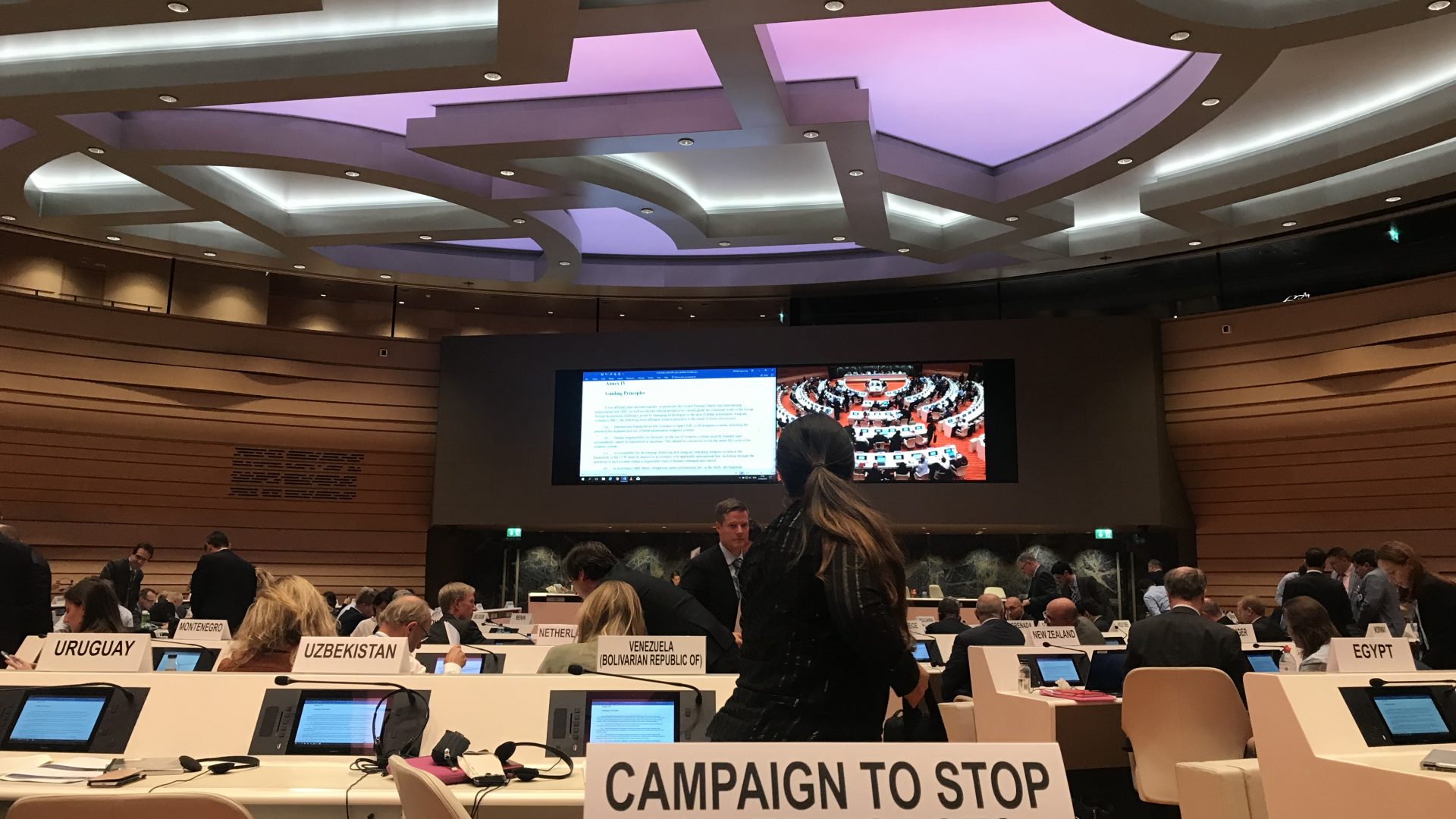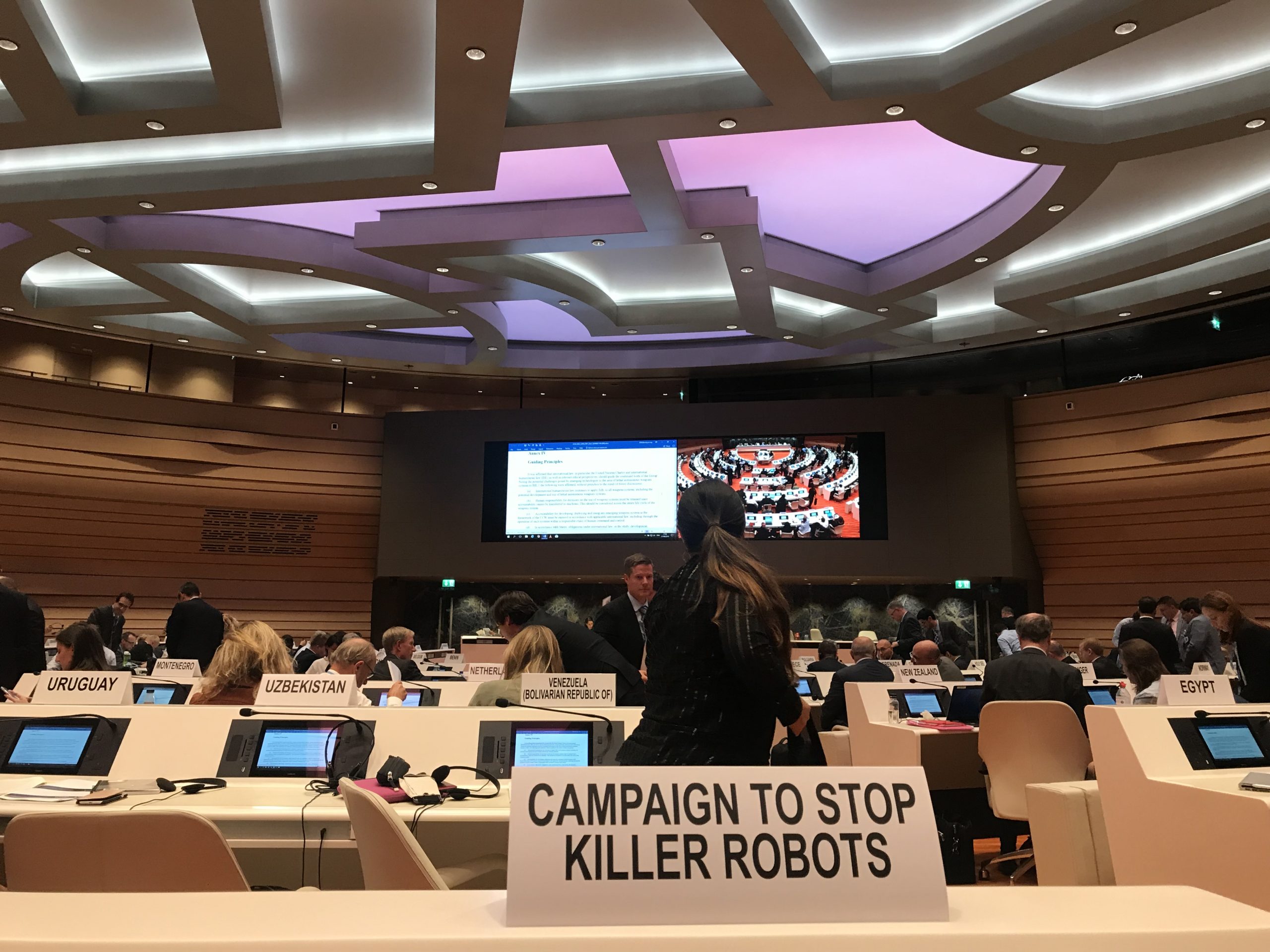
Maintaining momentum during the pandemic

The United Nations (UN) has confirmed that a Convention on Conventional Weapons (CCW) meeting on lethal autonomous weapons systems will proceed to be held on 21-25 September. This will be the first diplomatic meeting on killer robots since August 2019 and ninth since 2014.
The COVID-19 pandemic forced the postponement of CCW meetings on killer robots scheduled earlier in 2020. The meeting will be held in-person at the Palais des Nations in Geneva under strict physical distancing measures that limit each delegation to a single representative. It will be the first CCW meeting to allow virtual participation and be broadcast live on UN WebTV.
Russia opposed proposals to hold the killer robots meetings virtually and has suggested they be postponed completely until 2021. Russia is widely expected to raise procedural concerns again at the meeting.
The CCW meeting will be chaired by Ljupcho Gjorgjinski of the Republic of North Macedonia, who chaired the previous year’s talks on killer robots. States are unlikely to take any decisions at the meeting, which will follow the same agenda as last year.
Discussion at the meeting is expected to center on “commonalities” emerging from detailed commentaries and working papers turned into the CCW chair from more than 30 countries, including Australia, Austria, Brazil, China, Colombia, Costa Rica, Cuba, Ecuador, Finland, France, Germany x 2, Guatemala, Israel, Italy, Japan, Mauritius, Netherlands, Panama, Poland, Portugal, Russia, South Africa, Spain, Sweden, Switzerland, United Kingdom, United States, and Venezuela as well as the Non-Aligned Movement and a group of nine states (Austria, Belgium, Brazil, Chile, Ireland, Germany, Luxembourg, Mexico and New Zealand). The ICRC and Campaign to Stop Killer Robots have also provided their own commentaries.
The Campaign to Stop Killer Robots encourages states to make the most of the meeting by engaging on substance. States must achieve measurable progress by the CCW’s Sixth Review Conference in December 2021. By then, at the latest, they must launch negotiations on a new international ban treaty to retain meaningful human control over the use of force.
Another CCW meeting on killer robots is scheduled for 2-6 November in advance of the CCW annual meeting on 11-13 November.
The Campaign will be represented in-person in Geneva and with a sizeable virtual presence. Since the onset of the Covid-19 pandemic, the Campaign to Stop Killer Robots has hosted digital forums, participated in virtual multilateral meetings, and kept up its engagement with governments around the world. This month, Ousman Noor started as the Campaign’s Government Relations Manager, a new Geneva-based position that aims to encourage more support and build greater policy coherence behind the goal banning killer robots.
For more information, see:
- CCW website and documents
- Campaign to Stop Killer Robots web post, Key Elements paper,
- Human Rights Watch Country Positions report
- WILPF Reaching Critical Will website, including CCW Review


